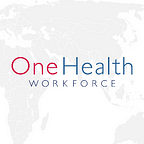Bright “One Health” Minds Gathered for One Health Young Leaders and Communicators
Efforts to improve knowledge on how to deal with the threat of zoonosis intensifies with the One Health Young Leaders and Communicators program held from 16 to 19 July 2018 in Port Dickson, Malaysia. A total of 49 students from six local universities and four students from three Cambodian universities had the opportunity to participate in the five-day One Health Young Leaders program.
Project Leader, Dr. Mohd Faizal Ghazali, said the objective of the exercise was to introduce students to the concept of One Health and to provide knowledge on the competencies required in the One Health practice. He said the concept requires individuals to work in groups rather than siloed when dealing with various issues. Zoonotic disease issues are complex and more effectively addressed using the One Health concept among various agencies and institutions. Veterinary Medicine lecturer from the Sultan Zainal Abidin University (UNISZA) noted the program also aimed to train and improve the competence of future leaders to become better leaders. He said this was because they had the opportunity to learn new knowledge and skills through the program.
The program gathers students from a variety of different fields including Medical and Health Sciences, Veterinary Medicine, Environmental Science, Social Work, Animal Sciences, Agriculture, and Psychology. Through the activities planned for the students, they work in a group to solve problems using their respective expertise thus strengthening communication, collaboration, and networking. Aside from being introduced to the concept of One Health and leadership, students were also briefed on various aspects including current issues, behavioral management, social communication, responsible leadership, and control of a disease.
During the program, students visited a nearby village and got the opportunity to ask about the problems caused by animals in the area. After the visit, the students discussed the problems and then worked together on solutions based on what they learned throughout the visit. It was an opportunity for them to view how One Health is translated into action.
Program facilitators included the Adviser of the Southeast Asia One Health University (SEAOHUN) and Tuft University Lecturer, Professor Dr. Stanley Gordon Fenwick. Associate Professor Dr. Aziah Daud from Universiti Sains Malaysia (USM), Dr. Roslaini Abd Majid from Universiti Putra Malaysia (UPM), Dr. Roslaini Abd Majid, Dr. Sandie Choong Siew Shien from Universiti Malaysia Kelantan (UMK) and many others were the facilitators during the program. These facilitators helped to solve the problems with the students, as well as guided students in their group to familiarize themselves with working together and listening to different points of view from different backgrounds.
The One Health concept is beneficial in working together to help resolve the threat of zoonosis diseases. Though these are the young minds, the concept will be beneficial when they enter the realm of professional work after school. A Science and Environment student from the Universiti Putra Malaysia (UPM), Muhammad Nuqman Hakim Mohamad, 20, felt lucky to have the opportunity to participate in the program. He said the program managed to open his eyes to work in a group to solve problems, as he previously only relied on solving the problem alone without help.
“When given an assignment to be completed, we are divided into groups with different backgrounds which we completed the findings through thorough discussion. The assignment made me feel at work because we managed to solve a problem with the cooperation of our team members,” he said. He noted that if, given the opportunity to participate in such a program again, he would never refuse the opportunity to increase his knowledge before he started working.
Meanwhile, his friend, Lo Weileen, 22, a student of UPM Veterinary Medicine, initially thought the program was merely to add knowledge to her studies. “But I’m wrong, this program made me understand more about the true meaning of working in a group to solve a problem. Although there is a slight contradiction, it is important to recognize that every idea given is very useful although sometimes we feel it makes no sense,” she said. The program also made her want to find more friends from other areas to have better communication and understanding across disciplines.
When guided and encouraged by teachers, lecturers, and facilitators, young and bright minds can become the shining beacons in their own lives — as well as the country and the world.
About the Author
Norsaiful Bahri Abdul Habib is a publicity and communications officer with the Malaysia One Health University Network (MyOHUN), a network supported by the USAID One Health Workforce project.
